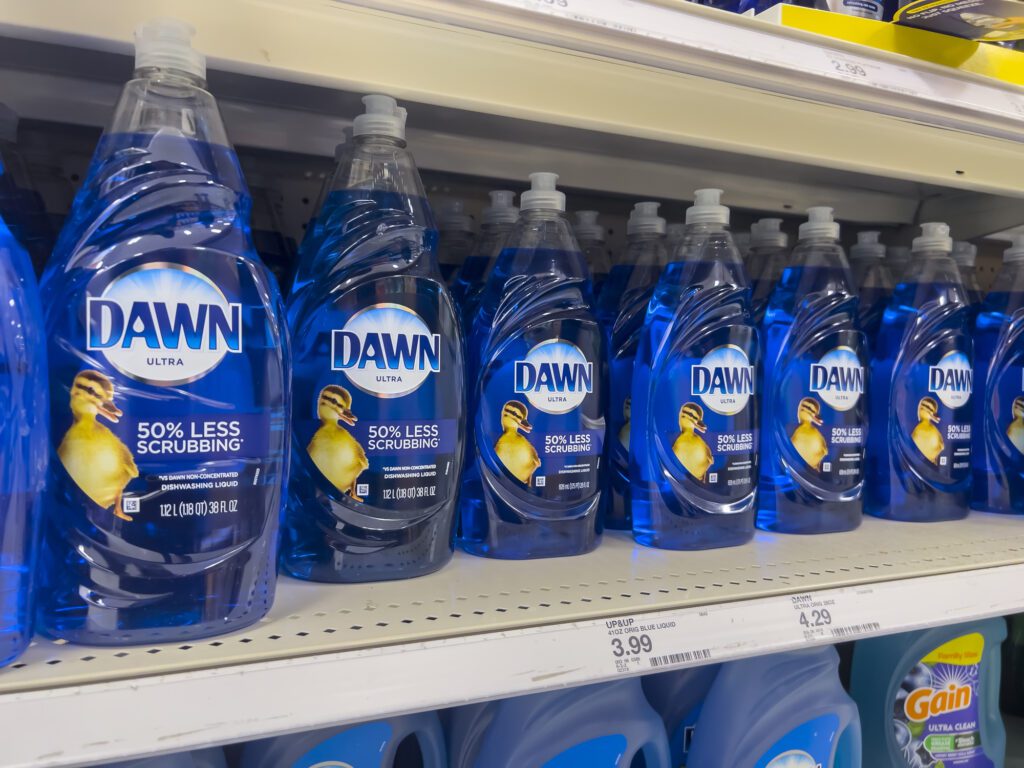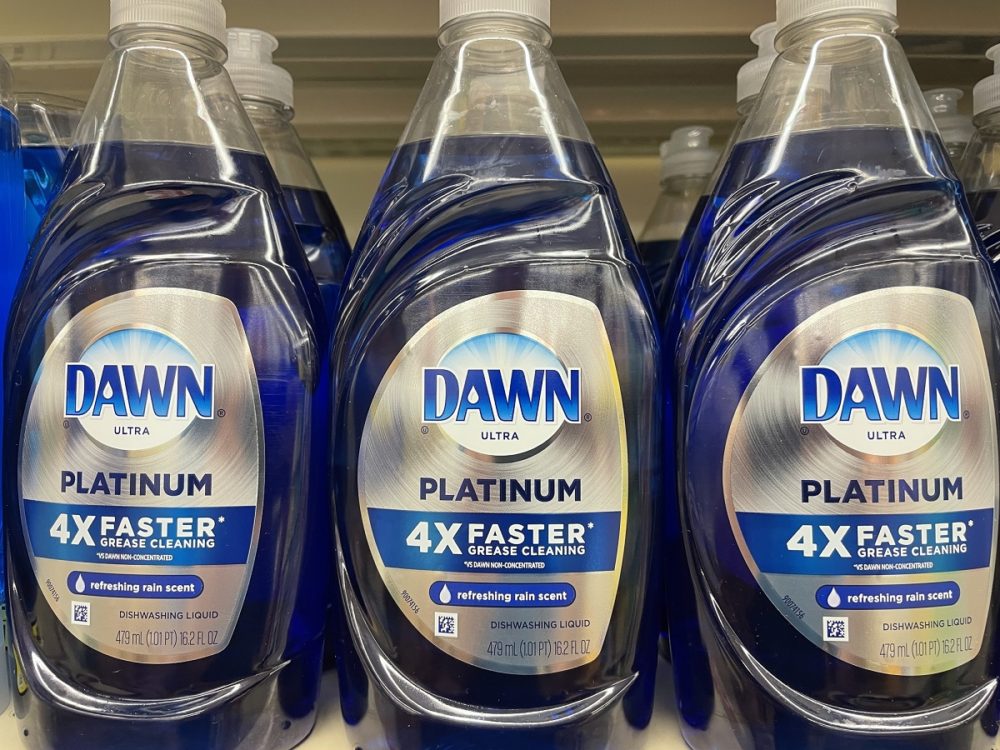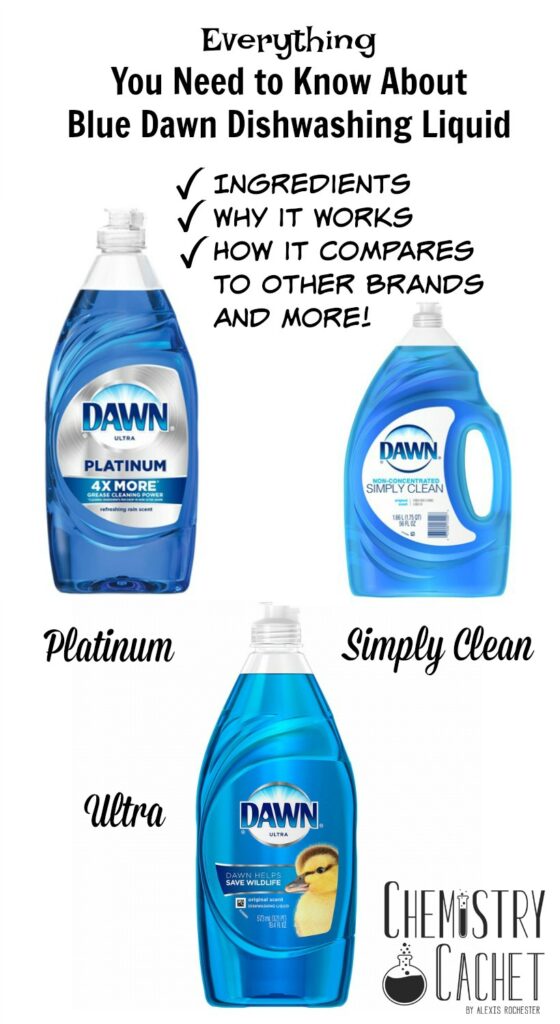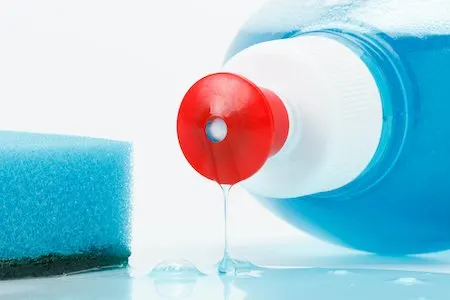If you have a septic system at home, you may have wondered if it’s safe to use Dawn dish soap. The answer is not as clear-cut as you might expect. While Dawn is undoubtedly an effective and popular choice for tackling grease and oil on dishes, its high concentration of surfactants and additives can potentially harm the delicate balance of bacteria in your septic tank. In this article, we will explore the impact of using Dawn dish soap with a septic system and provide you with alternative eco-friendly options that are septic-safe.

Understanding Septic Systems
A septic system is an underground wastewater treatment system commonly used in areas without access to public sewer systems. It is typically found in rural areas or homes that are not connected to a city’s main sewage line. A septic system is designed to collect and treat household wastewater, including toilet, shower, and kitchen waste. It consists of several components working together to effectively break down and treat the wastewater before it is safely discharged into the soil.
How does a septic system work?
A septic system works by utilizing natural processes to treat and filter wastewater. When wastewater enters the septic tank, it is held there for a period of time, allowing solids to settle to the bottom as sludge and oils and grease to rise to the top as scum. The liquid portion of the wastewater, known as effluent, then flows into the drainfield or leach field, which is a network of perforated pipes buried in the soil.
In the drainfield, the effluent is gradually released into the surrounding soil, where it is further treated and filtered by naturally occurring bacteria and other microorganisms. These organisms break down and neutralize harmful pathogens and organic matter present in the wastewater, purifying it before it enters the groundwater or nearby water bodies.
What are the components of a septic system?
A typical septic system consists of three main components: the septic tank, the drainfield, and the soil. The septic tank is a large, watertight container made of concrete, fiberglass, or polyethylene. It is buried underground and serves as the initial treatment chamber for the wastewater. The drainfield, also known as the leach field, is composed of perforated pipes or chambers buried in the soil. This is where the effluent from the septic tank is distributed and further treated by the soil. The soil acts as a natural filter and final treatment medium, removing any remaining impurities before the treated wastewater reenters the ecosystem.
What can damage a septic system?
Although septic systems are designed to be durable and long-lasting, certain actions and substances can cause damage and disrupt their functionality. It is crucial to be mindful of the following factors that can potentially harm your septic system:
-
Flushing non-biodegradable items: Flushing non-biodegradable items such as sanitary products, wipes, diapers, or paper towels down the toilet can clog the septic system and cause blockages.
-
Using excessive water: Overusing water can overwhelm the septic system and hinder its ability to effectively treat wastewater. It is important to be mindful of water usage, especially during peak times or while doing laundry.
-
Pouring harmful chemicals: Pouring chemicals such as paint, solvents, pesticides, or excessive amounts of cleaning products down the drain can disrupt the natural processes in the septic tank and harm the beneficial bacteria.
-
Parked vehicles or heavy structures: Avoid placing heavy vehicles or constructing heavy structures on top of the drainfield area, as this can compact the soil and limit the absorption capacity of the wastewater.
Understanding Dish Soaps
Dish soap, also known as dishwashing detergent or dishwashing liquid, is a cleaning agent specifically formulated for washing dishes and utensils. It is designed to remove grease, food residues, and stains from dishes, leaving them clean and sanitized. Dish soaps come in various formulations and brands, each offering different cleaning properties and ingredients.

What ingredients are commonly found in dish soaps?
Dish soaps typically contain a combination of surfactants, fragrances, preservatives, and other additives. Surfactants, or surface-active agents, are the key ingredients responsible for breaking down grease and oils. They lower the surface tension of water, allowing it to spread evenly and penetrate food residues for effective cleaning. Fragrances are added to provide a pleasant scent, while preservatives help maintain the stability and shelf life of the dish soap. Other additives may include dyes, enzymes, and antibacterial agents, depending on the specific formulation.
Are dish soaps safe for the environment?
Many dish soaps on the market today are formulated to be biodegradable and environmentally friendly. These products are designed to break down easily in the environment without causing harm to aquatic life or polluting water sources. However, not all dish soaps are created equal, and it is important to choose brands that prioritize sustainability and environmental safety.
When selecting a dish soap, look for labels that indicate “biodegradable,” “environmentally friendly,” or “eco-friendly.” These products are typically free from harsh chemicals and have minimal impact on the environment. Reading the ingredient list can also be helpful in determining the environmental safety of a dish soap.
Effects of Dish Soaps on Septic Systems
As dish soaps are commonly used in households with septic systems, it is essential to understand their potential effects on these wastewater treatment systems. While traditional septic systems are designed to handle normal household wastewater, certain ingredients found in dish soaps can pose challenges and potentially compromise the functionality of the septic system.
Do dish soaps harm septic systems?
In general, the occasional use of regular dish soap in moderate amounts is unlikely to cause significant harm to a properly functioning septic system. However, excessive or continuous use of dish soaps that contain harsh chemicals or high levels of surfactants can negatively impact the septic system’s delicate balance.
How do dish soaps affect the bacteria in septic systems?
One of the critical components of a septic system’s functionality is the presence of beneficial bacteria. These bacteria are responsible for biologically breaking down the organic matter present in the wastewater, including grease, oils, and leftover food particles. The use of certain dish soaps can disrupt the bacterial balance in the septic tank, inhibiting the natural breakdown process and potentially leading to a buildup of solids or scum.

Which ingredients in dish soaps can be harmful?
Some ingredients commonly found in dish soaps can be harmful to septic systems if used in excessive amounts or regularly. These include:
-
Antibacterial agents: Dish soaps that contain antibacterial agents, such as triclosan or triclocarban, can harm septic system bacteria. These agents are designed to kill bacteria, which can upset the balance of beneficial bacteria in the septic tank.
-
Phosphates: Phosphates are often used in dish soaps as water softeners and to enhance cleaning power. However, excessive amounts of phosphates can promote algal blooms in bodies of water, leading to ecological imbalances. Fortunately, many dish soaps now offer phosphate-free formulations.
-
Fragrances: While fragrances in dish soaps are intended to provide a pleasant scent, they can be derived from synthetic chemicals that might be harmful to the environment or septic system bacteria. Opting for fragrance-free dish soaps can mitigate this risk.
-
Harsh chemicals: Dish soaps that contain harsh chemicals, such as chlorine bleach or ammonia, can potentially disrupt the natural processes in a septic tank and harm the bacteria responsible for wastewater treatment.
Can dish soaps cause septic system failures?
In most cases, occasional use of regular dish soap in moderation is unlikely to cause septic system failures. However, continuous use of dish soaps with harmful ingredients, combined with other factors such as overuse of water or improper septic system maintenance, can contribute to system failures over time. It is crucial to strike a balance between effective dishwashing and preserving the health and functionality of the septic system.
Understanding Dawn Dish Soap
Dawn dish soap is a popular brand of dishwashing detergent known for its powerful grease-fighting abilities. It is widely used in households around the world and is considered by many as a highly effective dishwashing solution.
What is Dawn dish soap?
Dawn dish soap, produced by Procter & Gamble, is a liquid detergent specifically formulated for cutting through grease and tough stains. It is available in various formulations targeting specific cleaning needs, including original Dawn, Dawn Platinum, Dawn Ultra, and Dawn Pure Essentials.
Are there different types of Dawn dish soap?
Yes, Dawn dish soap comes in different varieties to cater to different cleaning needs. The original Dawn dish soap is a versatile option suitable for everyday dishwashing tasks. Dawn Platinum offers even more cutting power, making it suitable for tackling tough, stuck-on food residues. Dawn Ultra is a concentrated formula that requires a smaller amount per use, providing effective cleaning while reducing waste. Dawn Pure Essentials is a fragrance-free option that eliminates artificial dyes and phosphates.

What ingredients are in Dawn dish soap?
Dawn dish soap contains a combination of surfactants, preservatives, fragrance, and other additives. The exact formulation may vary depending on the specific variant. However, most Dawn dish soaps are water-based and contain highly effective surfactants designed specifically to remove grease and oil.
Some common ingredients found in Dawn dish soap include:
-
Sodium lauryl sulfate: This surfactant is known for its excellent grease-cutting capabilities and is a key ingredient in many dish soaps, including Dawn.
-
Cocamidopropyl betaine: This surfactant helps create a thick lather and enhances the cleaning performance of the dish soap.
-
Preservatives: Dawn dish soaps contain preservatives to maintain the stability and effectiveness of the product over time.
-
Fragrance: Dawn dish soaps may contain fragrances to provide a pleasant scent. However, fragrance-free options are also available.
Dawn Dish Soap and Septic Systems
Given its popularity and effectiveness in cutting through grease, many people wonder if Dawn dish soap is safe for use in septic systems. Let’s explore this further:
Is Dawn dish soap safe for septic systems?
Yes, Dawn dish soap is generally considered safe for use in septic systems when used according to the recommended dosages. As long as you use Dawn dish soap in moderation and avoid excessive use, it should not cause significant harm to your septic system.
Dawn offers various formulations, including Dawn Pure Essentials, which is specifically designed to be environmentally friendly and safe for septic systems. This fragrance-free option does not contain artificial dyes or phosphates, making it a suitable choice for those concerned about the impact on the environment or their septic system.
Does Dawn dish soap harm septic system bacteria?
Dawn dish soap, when used properly, does not harm the beneficial bacteria present in septic systems. These bacteria are essential for breaking down organic matter in the wastewater. Dawn’s formulas are designed to effectively remove grease and food residues without inhibiting the bacterial activity necessary for the proper functioning of a septic system.
Has Dawn conducted any specific tests on septic systems?
Dawn has conducted independent testing to ensure its dish soaps are safe for septic systems. These tests evaluate the compatibility of Dawn dish soap with septic systems and assess any potential impacts on the bacterial activity within the system. The results have shown that Dawn dish soaps, including Dawn Pure Essentials, do not pose significant risks to septic system functionality when used as directed.

Septic System Maintenance
To ensure the long-term functionality and effectiveness of your septic system, regular maintenance is essential. Here are some essential septic system maintenance practices to follow:
What are essential septic system maintenance practices?
-
Regular inspections: Schedule periodic inspections of your septic system by a professional to check for any signs of damage or potential issues. They can assess the condition of the tank, drainfield, and other components, and provide recommendations for necessary repairs or maintenance.
-
Pumping the septic tank: Regularly pumping out the septic tank is crucial to prevent solids from accumulating and clogging the system. The frequency of pumping depends on the size of the tank and the number of occupants in the household. A general guideline is to have the septic tank pumped every 3-5 years.
-
Proper waste disposal: Avoid flushing non-biodegradable items, such as wipes or sanitary products, down the toilet. These items can clog the septic system and cause blockages. Ensure that only biodegradable materials and wastewater enter the system.
-
Water conservation: Be mindful of water usage to prevent overloading the septic system. Fix any leaks promptly, install water-efficient fixtures, and practice water-conserving habits, such as running full dishwasher loads and using efficient washing machines.
How often should septic tanks be pumped?
The frequency of septic tank pumping depends on various factors, including the tank size, the number of occupants in the household, and the amount of wastewater generated. As a general guideline, septic tanks should be pumped every 3-5 years. However, it is best to consult a professional to determine the specific pumping schedule based on your individual circumstances.
Are there alternative cleaning products for septic systems?
Yes, there are alternative cleaning products available that are specifically formulated to be septic-safe. These products are designed to be compatible with septic systems, minimizing any potential harm to the beneficial bacteria and overall system functionality. Look for septic-safe cleaning products, including dish soaps, that are labeled as biodegradable, eco-friendly, or specifically formulated for use with septic systems.
Tips for Using Dish Soaps with Septic Systems
Using dish soaps with septic systems requires some consideration and care. Here are some general guidelines and tips to help you maintain a healthy septic system while effectively washing your dishes:
General guidelines for using any dish soap:
-
Use in moderation: Use dish soap in the recommended amounts for dishwashing. Excessive amounts of dish soap can lead to a buildup of surfactants in the septic system, potentially disrupting the bacterial activity.
-
Avoid antibacterial formulas: Choose dish soaps that do not contain antibacterial agents, as these can harm the beneficial bacteria in your septic system.
-
Read the labels: Look for dish soaps that are labeled as biodegradable, environmentally friendly, or septic-safe. These products are more likely to be formulated with ingredients that are less harmful to the environment and septic system bacteria.
Alternative dish soap options for septic system users:
For those who prefer to use alternative dish soaps that are specifically formulated for septic systems, there are several options available. These alternative dish soaps are designed to be effective in cutting through grease while being gentle on the environment and septic systems. Look for brands that clearly state their compatibility with septic systems and are free from harmful chemicals or artificial additives.
Proper usage and dosages of dish soap with septic systems:
To ensure the optimal performance of your septic system while using dish soap, it is important to follow these dos and don’ts:
-
Use the recommended amount: Follow the instructions on the dish soap packaging regarding the proper dosage for dishwashing. Using more than the recommended amount will not necessarily make your dishes cleaner and may cause problems in your septic system.
-
Scrape excess food: Scrape excess food residues off your dishes before washing them in the sink. This reduces the amount of organic matter entering the septic system and helps maintain its efficiency.
-
Pre-rinse if necessary: If your dishes have heavy grease or stuck-on food particles, consider pre-rinsing them before using the dish soap. This can help minimize the amount of grease and food entering the septic system.
Alternative Cleaning Solutions for Septic Systems
If you prefer not to use dish soaps with your septic system or want to explore more eco-friendly cleaning options, consider the following alternatives:
Natural alternatives to dish soaps for cleaning dishes:
-
Vinegar: A mixture of vinegar and water can effectively cut through grease and remove stains from dishes. Vinegar acts as a natural degreaser and helps eliminate odors.
-
Baking soda: Baking soda is a versatile cleaning agent that can be used to clean everything from ovens to countertops. Mix baking soda with water to create a paste and use it to scrub dishes before rinsing.
-
Lemon juice: Lemon juice is naturally acidic and can help remove tough stains and odors from dishes. Squeeze fresh lemon juice onto your dishes or mix it with water for a natural cleaning solution.
DIY cleaning solutions for septic system users:
If you enjoy making your own cleaning products, consider these easy DIY solutions for dishwashing:
-
Castile soap and water: Castile soap, made from vegetable oils, is gentle yet effective for dishwashing. Mix a small amount of castile soap with water to create a soapy solution for washing dishes.
-
Soap nuts: Soap nuts, also known as soap berries, contain natural saponins that create a lather when exposed to water. Place a few soap nuts in a muslin bag and use them as a natural alternative to dish soap.
-
Homemade citrus-infused cleaner: Infuse citrus peels, such as lemon or orange, in white vinegar for a few weeks. Strain the infused vinegar and dilute it with water to create an all-purpose cleaner for dishes and other surfaces.
Other eco-friendly cleaning products for septic systems:
If you prefer ready-to-use eco-friendly cleaning products, there are several brands available that offer septic-safe options. Look for products labeled as biodegradable, eco-friendly, or specifically formulated for use with septic systems. These products are typically free from harsh chemicals and are designed to be compatible with septic systems while being effective at cleaning.
Conclusion
In conclusion, understanding the compatibility of dish soaps, particularly Dawn dish soap, with septic systems is crucial for maintaining the health and functionality of your wastewater treatment system. While occasional and moderate use of regular dish soaps may not cause significant harm, it is important to choose septic-safe formulations, avoid excessive use, and be mindful of the ingredients in dish soaps.
Dawn dish soap, including Dawn Pure Essentials, is generally considered safe for septic systems when used as directed. It does not harm the beneficial bacteria responsible for wastewater treatment and has been tested for compatibility with septic systems.
Remember to follow proper septic system maintenance practices, including regular inspections and timely pumping of the septic tank. In addition, consider alternative cleaning solutions, such as DIY options or eco-friendly products, to minimize any potential impact on the environment and maintain a healthy septic system.
By understanding the compatibility of dish soaps with septic systems and making informed choices, you can effectively clean your dishes while preserving the health and functionality of your septic system for years to come.
